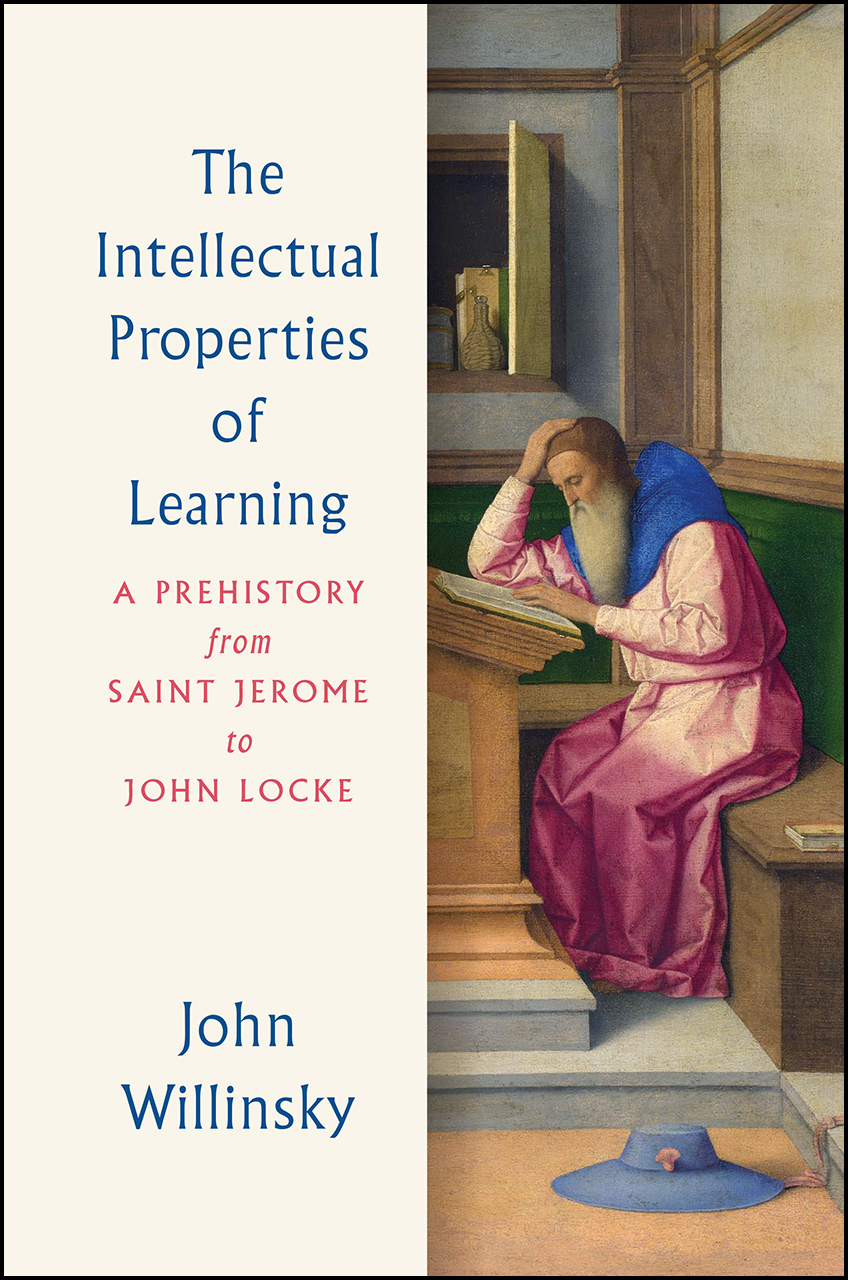An Introduction to Willinsky and the Text

Physical Copy Cost: $40
Open Access Digital Copy Available here
ISBN-13: 978-0226487922
ISBN-10: 022648792X
In The Intellectual Properties of Learning: A Prehistory from Saint Jerome to John Locke (2018), open access advocate and intellectual property scholar John Willinsky has constructed a history of the people and events that eventually led to the earliest version of what we now describe as intellectual property laws. Drawing attention to influential thinkers, Willinksy's monograph covered the late antiquarian and early medieval period up to John Locke's Two Treatise of Government (1689), which prompted the British government to develop the first intellectual property law, The Statute of Anne (1710). According to Willinsky's account of intellectual property law, the steady decrease in public access to academic materials has been consistently apparent throughout history. Consequently, it has become critical for scholars to pursue publishing in open access venues today.
One notable feature of this monograph is that Willinsky managed to successfully negotiate with The University of Chicago Press for a pre-production draft of the book to be digitally available for download free of charge on Stanford University's website. Willinsky’s ability to convince the University of Chicago Press to allow the free access of the book was unprecedented for the publisher and extremely progressive in regards to the push for more open access academic materials. The open access text, however, is not immune to criticism. For instance, prior to downloading the text, one must submit their email in order to gain access to the download. Although this seems like a minor inconvenience, it is more problematic for those who value anonymity when navigating the internet. Although there are easy ways around having to provide an authentic email address, if one takes the term open access in its most strict interpretation an email requirement could be interpreted as the text only being openly accessible at the cost of personal information.
A second criticism for the open access version is that each chapter must be downloaded individually. Although this division may provide easier access to specific sections or chapters of the text, providing a complete copy of the text would be equally beneficial. Besides having to take a few more minutes to download the entire text, which is mildly irritating, readers are inconvenienced by either having to merge the individual PDF files or switch between files when beginning a new chapter. However, neither Willinsky nor Stanford University should necessarily be blamed for this inconvenience. There are many factors that could have influenced this decision beyond personal design choices. Ultimately, Willinsky's text is valuable scholarship, as it handles topics relevant to all academic disciplines.